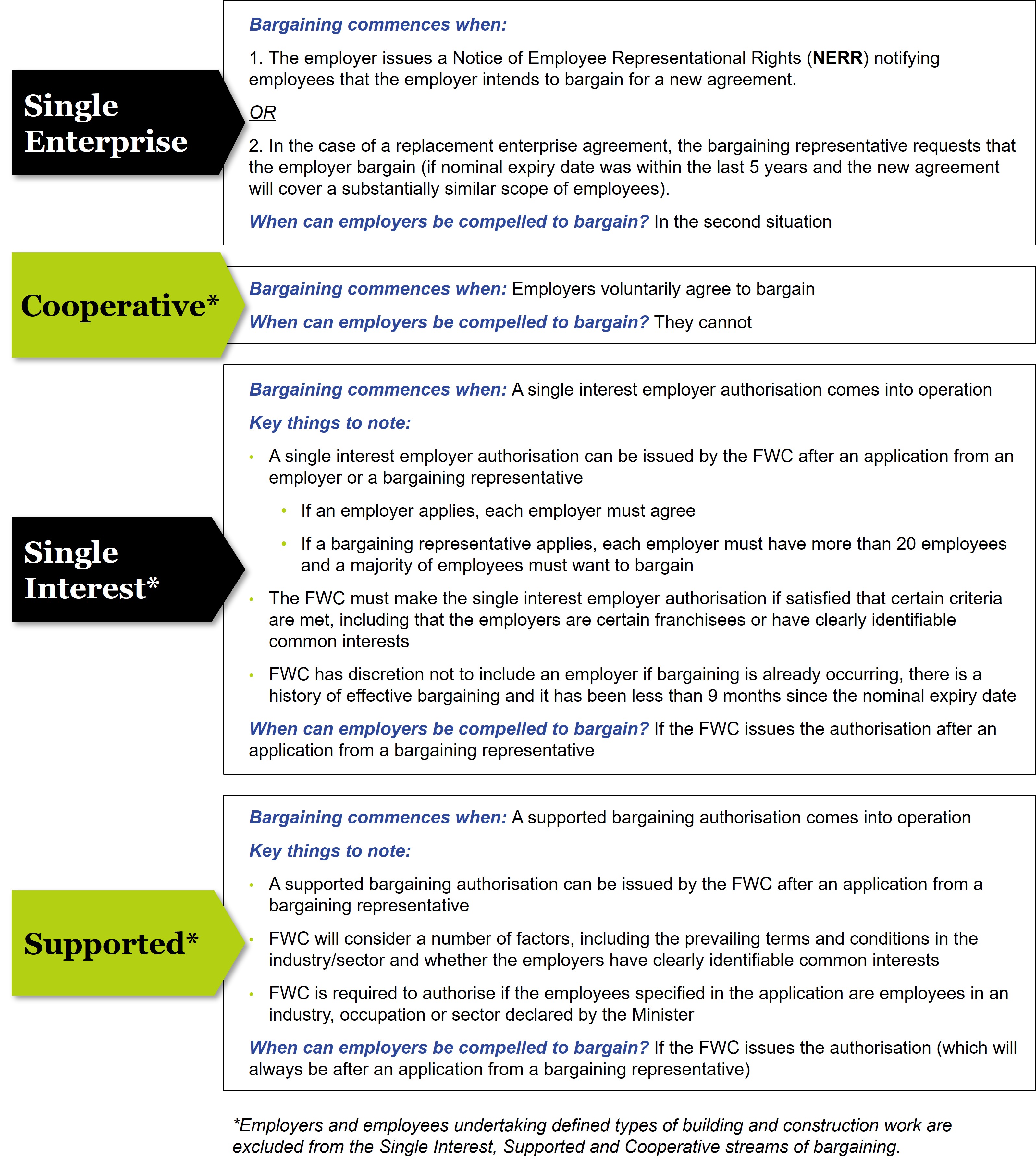
The resurgence of enterprise bargaining 02: Ready, set, go! How enterprise bargaining begins

Employers need to know how bargaining begins under the new legislation, when they can be compelled to bargain, and what they should do before bargaining begins.
The sixth of June is just around the corner and it is more important than ever that employers are across the changes to enterprise bargaining.
That's because, as of that day, the remaining changes made by the Fair Work Legislation Amendment (Secure Jobs, Better Pay) Act 2022 (Cth) will be in effect.
Amongst a number of other amendments, the Act has made significant changes to the rules for commencing bargaining and when employers can be compelled to bargain. There are different streams of enterprise bargaining, and the ways to commence bargaining for each stream is different, and you can work out which stream applies to you here.
Ways to commence bargaining
Once you know which stream applies to you, you can determine when bargaining commences for each stream (see below).
The key concern for many employers is whether they can be compelled to bargain against their wishes. As set out in the table, there are a number of situations where an employer can be compelled to bargain, which is different for each stream of bargaining.

To reduce the risk of being compelled to bargain, our view is that a communications plan and preparation prior to bargaining are essential.
Communication is key
Agreeing to and implementing a communications plan is critical. Likewise, employers must try to work co-operatively with bargaining representatives and employees, and not look at bargaining as an adversarial process.
There are a number of risks with failing to have an effective communications plan. In addition to the risk of industrial action or a no vote, bargaining representatives and employees now have unprecedented options to try to compel employers to bargain and can seek intractable bargaining declarations if bargaining is not progressing. The FWC also has new powers to make changes to enterprise agreements during the approval process. These risks will be covered in greater detail in our later articles.
A communications plan should include:
- A clear and agreed narrative on bargaining, including information about the process and how it differs to previous bargaining.
- Approximate timeframes that can be updated as further information is released about the new process.
- Identification of, and planned training for, key personnel involved in bargaining, and who employees can contact for further information.
If unsure, we recommend employers engage a communications consultant to work with them on their communications plan.
What else does an employer need to do before or when bargaining begins?
In our experience, successful bargaining comes from the employer carefully planning and driving the process. Driving the process ensures the employer is thoroughly prepared for bargaining by understanding the reason for, the cost of and the way in which any changes can be implemented.
Some of the practical steps employers can and should take are:
- Prepare a table of issues: Before bargaining commences, an employer should have a draft table of the terms and conditions that are likely to be contentious during bargaining and a "wish list" for what the employer would like to see changed from their current agreement. Once you have a wish list, we suggest gathering data to formulate savings and costing options in order to determine what you can afford.
- Decide on roles and responsibilities: Identify the key roles and responsibilities of stakeholders and the bargaining team. Having clear decision makers and scopes of responsibility will ensure decisions can be made promptly. We also recommend regular project meetings once bargaining commences to ensure tasks are being completed and deadlines are being met.
- Engage with any stakeholders who will need to provide approval: You should engage with any relevant stakeholders or decision makes to confirm how involved they want to be during bargaining and any approval steps. For example, does the Managing Director or CEO need to approve the organisation's position before bargaining begins? For Commonwealth clients, what approvals will the Australian Public Service Commission need to provide?
- Start considering next steps: This might include:
- Drafting wording for terms and conditions.
- Preparing agendas and talking points for bargaining meetings.
- Drafting supporting policies and procedures.
Key takeaway
We expect the changes to result in more pressure to bargain for those who do not have enterprise agreements and employers can be forced to bargain in various situations.
All employers with expired enterprise agreements should be considering their industrial strategy now.
For those who are waiting for bargaining to commence, we recommend you begin preparing now.
Get in touch
